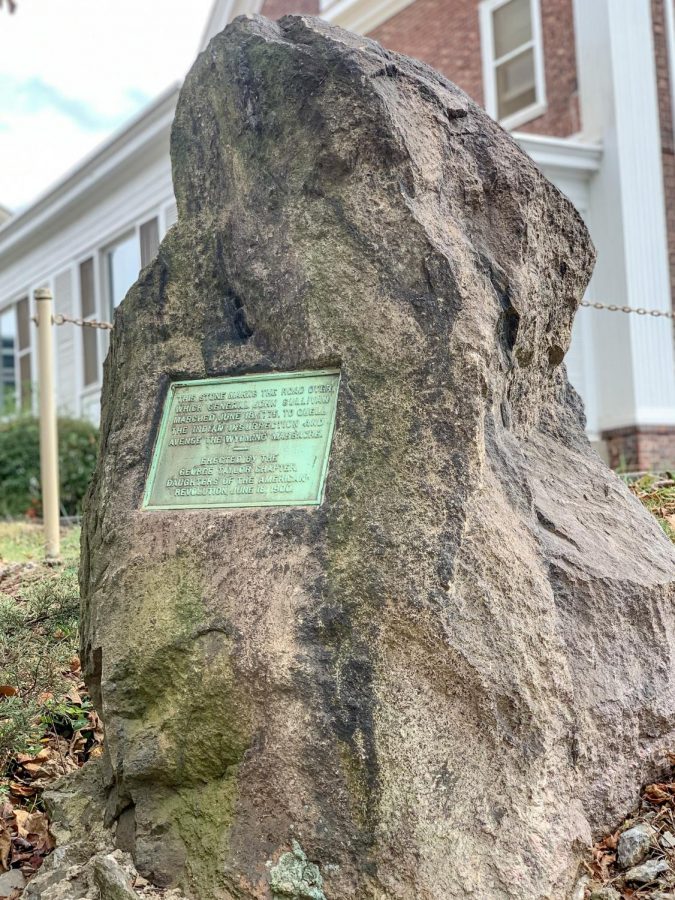Controversial memorial for Sullivan’s expedition remains two years after calls for removal
The inscription reads: “This stone marks the road over which General John Sullivan marched June 18, 1779 to quell the Indian insurrection and avenge the Wyoming Massacre.” (Photo by Caroline Burns ’22)
November 5, 2021
A movement to address a plaque on campus that commemorates early U.S. political leader and military officer in the American Revolution John Sullivan’s infamous “expedition” against the Iroquois tribe has not made any progress since its start before the pandemic.
The conversation about the plaque began with a letter to the administration written in 2019 by the students in International Affairs Professor Angelika von Wahl’s class “Atrocity, Genocide, and Reparations.” The letter described the plaque and the problematic history surrounding Sullivan’s military campaign against the Native Americans.
In a 1779 letter, George Washington ordered John Sullivan to cause “the total destruction and devastation of [indigenous American] settlements and the capture of as many prisoners of every age and sex as possible.” On these orders, Major General Sullivan led an expedition into upstate New York to eradicate the Iroquois villages who led devastating raids against American settlers. Forty villages in total were destroyed in this attempt at ethnic cleansing, forcing the Native Americans to flee into Canada in hopes of British protection, according to the National Park Services website.
The plaque commemorating the road over which Sullivan marched was erected in 1900 by the non-profit historical preservation society known as the Daughters of the American Revolution. It is located near the fraternity house of Delta Upsilon on Sullivan Road. A parking deck on campus also bears Sullivan’s name.
According to von Wahl, a fellow faculty member, a few members of the administration and herself had a meeting in 2019 with President Alison Byerly “in response to the letter” written by students of her class. She described the meeting as productive.
“We considered the choices of either doing nothing, which did not seem acceptable to anyone, removal of the whole memorial, which is not that simple legally because it is not owned by the College, or developing broader and deeper educational opportunities, material and debate around it,” von Wahl said.
Von Wahl noted that the educational opportunities could be offered online and that “the library had begun with archival research.”
While “everyone seemed to be ready to take the next steps,” von Wahl noted that support for the movement ran out because of the pandemic. “But what happened next–as you know–was the shut-down due to Corona and everything came to a halt,” she explained.
While the movement to possibly move the plaque has faltered, the start of Native American Heritage Month in November and media attention about Sullivan’s march has brought the issue back to the forefront.


























































































































tina pickett • Oct 18, 2023 at 8:57 am
defense of revolutionists attempting to form the unites states against indian and british raids whereby frontier settlers were kidnapped and killed was not a bad thing. the tactics employed were used by both sides. our tender youth seem unaware of the consequences of taking sides in a war.